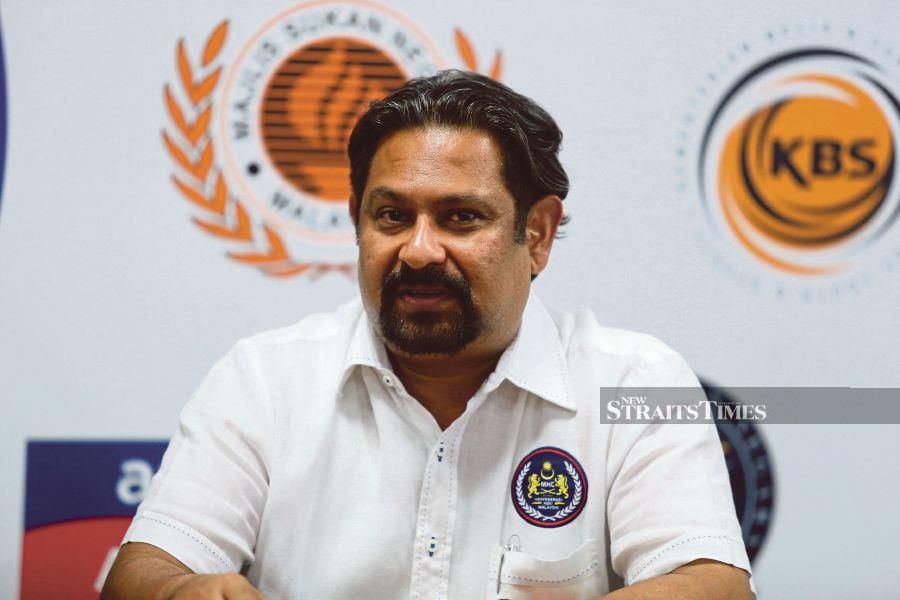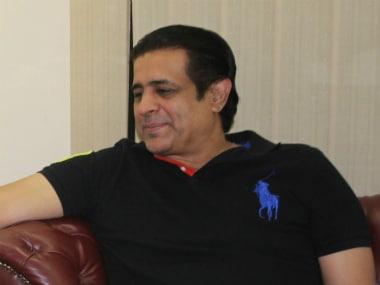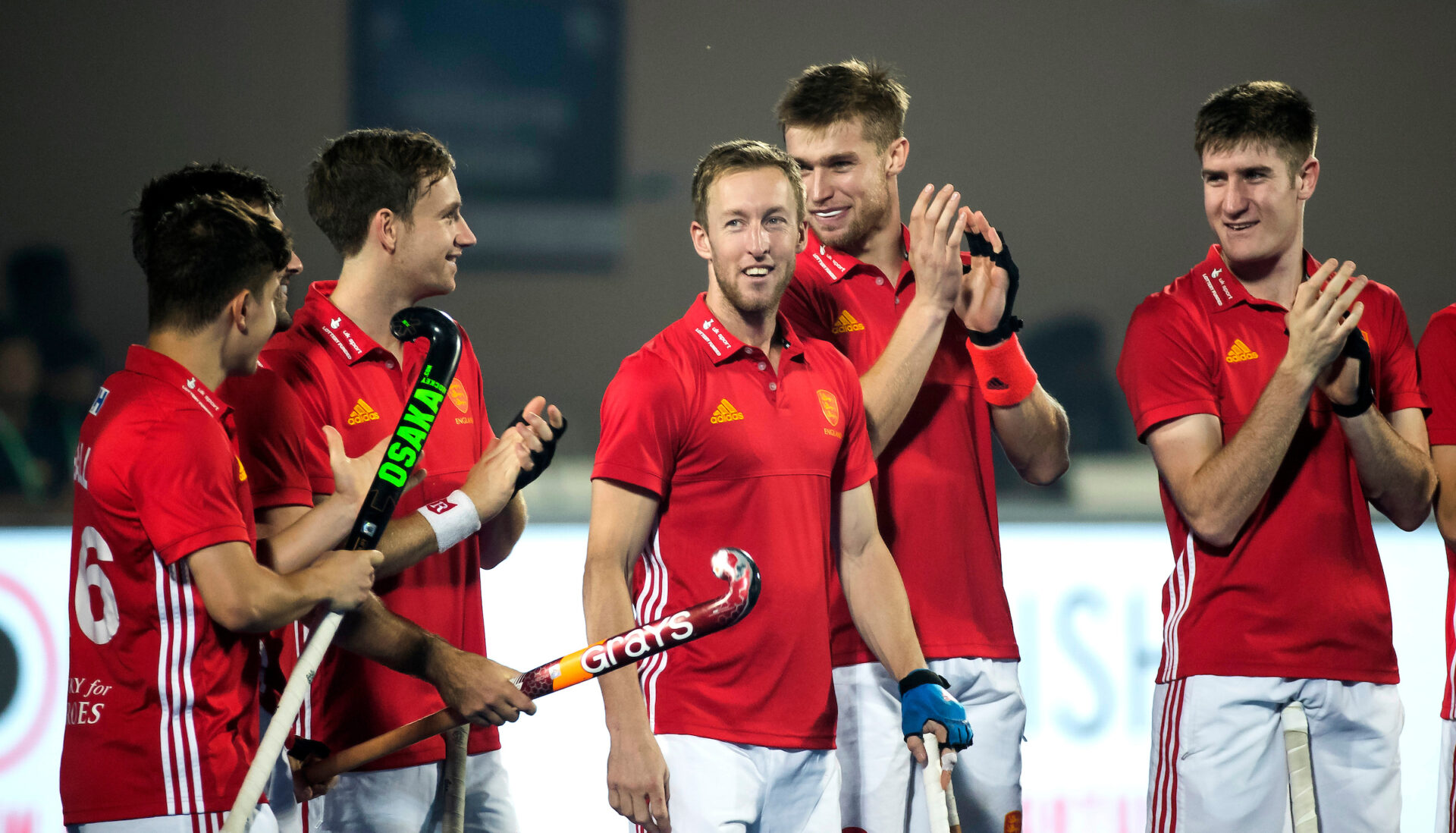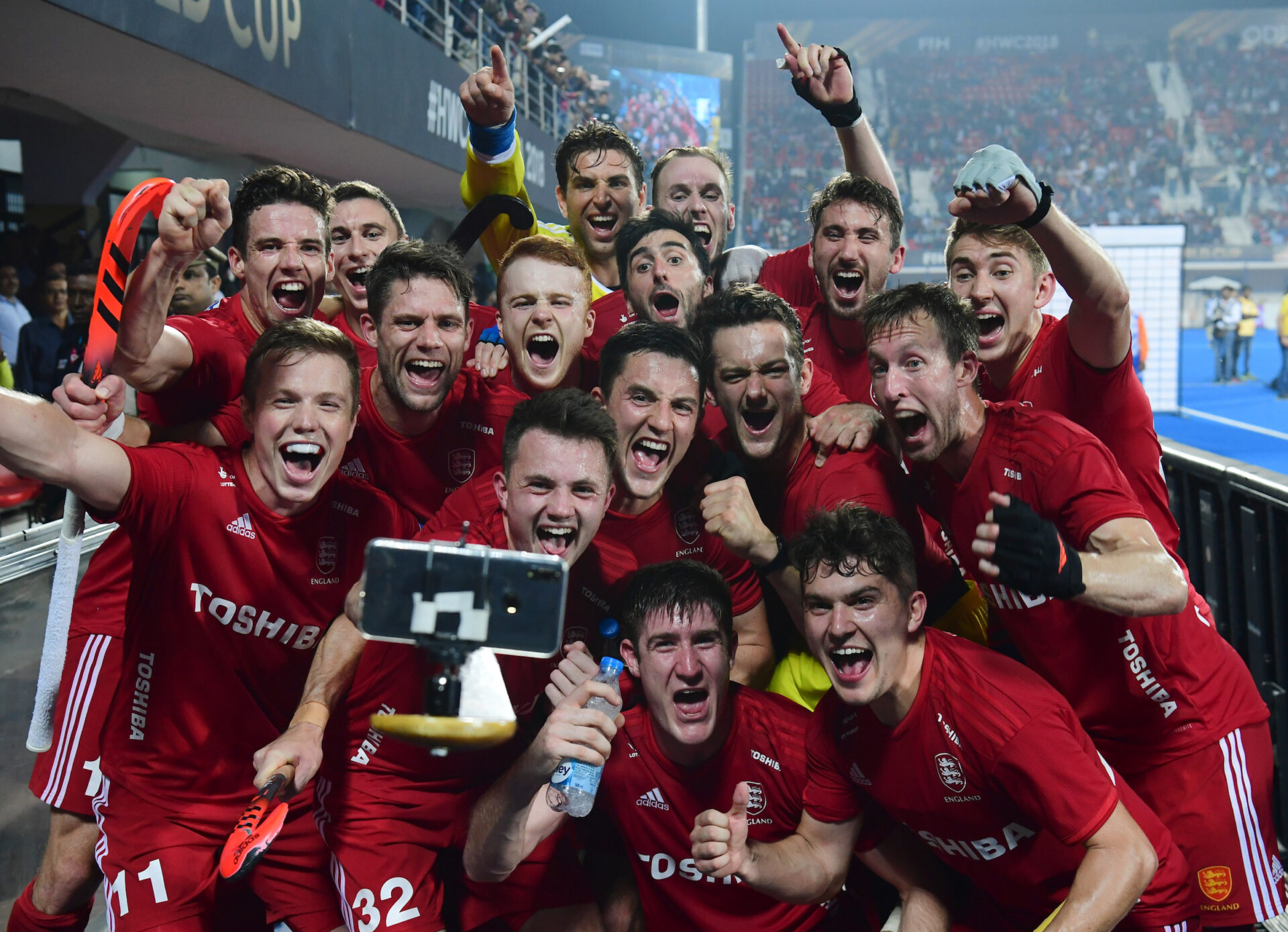News for 03 May 2020
All the news for Sunday 3 May 2020
Azlan Shah Cup cancelled
By Jugjet Singh
MHC president Datuk Seri Subahan Kamal.
THE Azlan Shah Cup was supposed to be a grand affair this year following its new status as a ranking tournament.
However, the prestigious tournament, incepted in 1983, has been cancelled due to the Covid-19 crisis.
The Azlan Shah Cup was initially scheduled on April 11-18 in Ipoh before it was moved to Sept 23-Oct 3.
The Perak HA (PHA), the organisers of the tournament, sent a confirmation letter on the cancellation of the tournament to the Malaysian Hockey Confederation (MHC) yesterday.
"It has been cancelled due to the Covid-19 pandemic. It is a pity as this year's edition was supposed to award world ranking points.
"We will now work closely with PHA to get suitable dates for next year's edition," said MHC president Datuk Seri Subahan Kamal.
Australia, Canada, Japan, South Korea and Pakistan were supposed to play in this year's edition.
MHC, however, plan to organise all local tournaments this year.
"We are planning to organise the postponed Junior Hockey League (men and women) along with the Under-16 and Under-14 tournaments in the last quarter of the year," he added.
Meanwhile, the MHC extended their condolences to the family of Kelantan HA deputy president Hamzi Shaari, who died yesterday.
Hamzi, 51, was also Kelantan's Razak Cup and Malaysia Games coach.
New Straits Times
Malaysian Hockey happy to wait
By AFTAR SINGH
KUALA LUMPUR: With nothing really to look forward to for the rest of the year, team sports like hockey are willing to wait for a few more months before allowing their men’s and women’s teams to start training.
While the government have allowed athletes from individual sports like athletics, badminton, table tennis and squash to start training from tomorrow, team sports like football and hockey are still on ice.
Malaysian Hockey Confederation (MHC) deputy president Datuk S. Shamala said they would abide by the rules set by the government for the national men’s and women’s teams to start training.
“We know that in team sports there is body contact and it will lead to the spread of the virus.
“The safety and health of the players are our top priority and we are willing to wait for a few months before letting our players onto the pitch.
“We also don’t have any tournaments this year due to the Covid-19 outbreak and we expect our national hockey teams to start training only in September, ” said Shamala.
She said the decision to allow the athletes from individual sports to start training was good.
“It will allow the government to monitor the situation before deciding on team sports.
“We hope everything will be back to normal in a few months’ time, ” said Shamala.
Asked about the cancellation of the six-nation Sultan Azlan Shah Cup in Ipoh, which had been scheduled for Sept 27-Oct 3, Shamala said it was a wise decision.
Australia, Canada, Japan, South Korea, Pakistan and Malaysia were supposed to feature in the tournament.
“It is good that the tournament has been cancelled. In some countries, the Covid-19 situation has spiked and countries don’t allow overseas travelling, ” she said.
Japan, for one, has gone into lockdown again after a second wave of the pandemic.
The Star of Malaysia
Pakistan Hockey Federation says 'situation has gone from bad to worse' for country’s national sport
File image of Pakistan Hockey Federation secretary-general Asif Bajwa. Image credit: Twitter/@PHFOfficial
Karachi: Hockey in Pakistan is already under severe financial stress and the coronavirus pandemic has only made the situation worse which could lead to the slow death of the national sport in the country, said PHF secretary general Asif Bajwa.
With three Olympic gold and four World Cup crowns, Pakistan hockey has a rich history. But of late, the sport is struggling to survive in the country because of lack of sponsors owing to the national team's poor show at the international stage. The COVID-19 pandemic has only made the situation critical.
"The coronavirus pandemic is having very negative effects on hockey. Already the PHF and the sport was facing a financial crunch in the country and now the situation has gone from bad to worse," Bajwa said on Saturday.
He said the pandemic, which has so far claimed close to 2,40,000 lives, had left many players jobless and without any income.
"The federation is also unfortunately not in a financial position where it can do much for these players," Bajwa, a former Olympian said.
The PHF official said many players, who are employed with departments, are facing problems while those who went to play in professional hockey leagues all over the world to earn good money are also living in uncertainty because of a complete halt in sporting activities across the globe.
He said a difficult time is in the offing for sports in Pakistan as and when things return to normal.
"It is a sad story for sports, including hockey in Pakistan right now. When normal activities resume even then the PHF will require a lot of money to reactivate hockey and send the senior and junior teams abroad for international events."
Bajwa urged the government and private sector to step in and bail out hockey.
"It is unfortunate but hockey is a sport in which we have been world champions, Olympic gold medallists, Asian champions and won so many titles. But right now hockey is in a very bad state," he signed off.
Firstpost
Reena Khokar: After eye injury, I wondered whether I would play hockey again
Reena Khokar has played 45 matches for India. - HOCKEY INDIA
A freak accident while training in the gymnasium in April, 2019, had Reena Khokar fearing for her career. In a chat with Hockey India, the India midfielder opened up about her eye injury that kept her out of the team for a number of months.
“I was using a stretch-band to do some simple flexibility exercise when the band snapped and hit my left eye. It happened so quickly that I had no time to react. At that time, little did I know that the next four months would be the worse phase of my life,” she said.
Reena debuted for the Indian team in 2017 and has been a regular feature in the India midfield ever since. She was part of the Indian team that won the silver medal at the 2018 Asian Games, and she also played the FIH Women’s World Cup earlier that year.
The injury brought a pause to her progress as surgery had to be done. “Initially the doctor has said it will heal soon but even after a month when the pain was persistent, the doctor then advised surgery to rule out permanent damage to the retina. This news was devastating and all I could think of was whether I will ever play hockey again,” Reena said.
Encouragement by Sjoerd Marijne
Support from family, friends and coaches helped her heal and get ready for a return to hockey. Reena returned to the national camp in July, 2019.
“I was advised two months bed rest and when I returned to the camp chief coach Sjoerd would talk to me regularly to pep me up. He would tell me about a player in Netherlands who played hockey with vision only in one eye. Positive stories like these and emotional support from my parents and some close friends outside of hockey kept me motivated. When I held the stick again, after almost three months, I knew I would do anything to return to the team and I am thankful to the coaching staff who supported me with step-by-step return to full training and didn’t put any kind of pressure,” Reena said.
To the surprise of many, Reena was available for the FIH Olympic Qualifiers selections as she had made her comeback in the Test Event held in Tokyo in August, 2019. In December, she underwent another corrective surgery, but the danger had passed and Reena now hopes to make the best use of this year to earn a spot in the Tokyo-bound Indian team.
“I got a break in the Indian team quite late. I was around 24 when I made my India debut and my junior India experience is less, so the next one year I will do everything I can do prove myself worthy of a place in the Olympic-bound India squad.”
Sportstar
Teun de Nooijer’s my hero! Why Barry Middleton couldn’t go past record
Barry Middleton has finally been able to look back on his memorable hockey career, he tells Rod Gilmour
Barry Middleton recognised for 400 caps PIC: WORLDSPORTPICS
There would be times interviewing Barry Middleton over the years where you would find him, or will him even, to be in an adrenaline moment. You knew when to sound him out for that diamond line. Still pumped from a winning match, Middleton would give you some tub-thumping, Three Lions-style quote or other. And, boy, these moments were good.
Three come to mind. The first came in Delhi at the 2010 Commonwealth Games when he spoke of facing up to a baying 20,000 crowd against India in the semi-finals. Then, in a hotel in The Hague before England’s match-up with Holland in the World Cup semi-final, he gave a battled-hardened interview on laying it out on the line, a la Terry Butcher and the blood-soaked headband era.
The most recent came in Bhubaneswar at the 2018 World Cup as England held on for a superb first victory over Argentina in 20 years to reach the semi-finals.
This was Middleton time. But as he came through to the interview area, it was clear he was in pain. He had felt the full impact of a thunderous 100 mph drag-flick from Gonzalo Peillat. Brushing off the discomfort, he was clutching his hand and visibly shaking as the adrenaline kicked in as he was able to speak of this instant World Cup classic. “You’ve got to do the little things people don’t notice,” he said. “You have to do the dirty stuff. That’s what wins you the bigger games, not the fancy stuff.”
Off the pitch, Middleton would have stellar words to say about any of the clubs he played for in his career. Which is why he received a multitude of plaudits from across the globe when news hit that his international days had come to an end. He admits that the manic few days following his retirement news was the first time he opened the memory bank on his career, which took in the likes of Doncaster, Cannock, HGC, Club An Der Alster, East Grinstead and current club Holcombe.
“I’ve always said when you’re in it, you don’t look back,” he tells The Hockey Paper. “I said once in an interview that when I finished I want to be remembered as someone who has enjoyed what I’ve done and brought happiness to people. It made me think that what I did was the right way. I think I’ve achieved what I’ve set out to do.”
The World Cup in India was ultimately his last hurrah – there will be no fifth Olympics – as he put one final, pugnacious effort into playing for England. He then returned home for two days before travelling to New Zealand to join wife Beckie, where the couple were player-coaches at Somerville HC in Auckland.
“There were times where I lost it and forgot it. That might be where the burn out came about as you are in it so much. With the last few years as you approach the end of your career, you fall in love with it again and you’re not going to do it forever. I really got that right but realised it was still just a game and you play better when you’re enjoying yourself.”
As he replied to messages following an international career which spanned 15 years, Middleton was finally able to think about the connections and memories he had forged in the game. “A lot of them aren’t the ones where you won or lost or did something crazy on the pitch,” he admits. “They were the times with team-mates or going away and the people I met across the world. That’s what hockey gives in so many ways. It’s so social and it’s a way of making friends.”
Best of days: Barry Middleton, middle right, celebrates after England’s win over Argentina at 2018 World Cup WORLD SPORT PICS
Middleton finished 21 caps shy of Teun de Nooijer’s world record 453. “He knew you had to leave him. That’s the reason why I stopped as you’re not allowed to go past Teun. He’s the hero.” A joke, of course. “It was always something that was spoken about,” he adds. “It would have been an amazing thing to get there but it was never about that for me. The amount of games I played was pretty good but it wouldn’t have changed anything to go past Teun and do 20 or 30 more. But you might see people go past it soon with the amount of hockey being played these days.”
Middleton made three FIH World All Star Team XIs and a large part of his longevity was down to having a relatively injury-free career. He broke his knuckle two years ago and had to take six weeks off over Christmas, broke his toe in 2010 and was out for six weeks and then his shoulder during the build-up to Rio. In all? He missed one tournament and was fit for every other.
“Everyone who is in elite sport finds themselves in pain most days of the year in some way,” he admits. “You drag yourself out of bed to get to a session somehow or people play with injuries and you look back and it doesn’t look normal when you think about what some of the guys are doing with their bodies. If you got scanned or X-rayed, you would probably have doctors telling them they shouldn’t be playing.”
Middleton says that the training regime prior to the 2018 World Cup ultimately laid the foundations for his decision. He says: “I had the hard training phase leading up to it and the days where my body was hurting. To drag yourself out of bed to train at 35 was getting harder. That was where I could make the decision rather than being emotional and at the World Cup. I gave everything I had in that phase and I didn’t think I could make that personal commitment again.”
Middleton has seen it and done it across the globe. But he doesn’t have any concerns over hockey’s future, more a hope that the sport can move forward with everyone’s best interests at heart. “It’s embracing the sport to keep hockey moving with Hockey One and the Pro League. My hope is that people can collaborate and realise that when you start new things they’re not perfect but done for the right reason and to make the best for each other.
“It needs to combine with the leagues in Europe and the club structure is a massive thing and this shouldn’t get forgotten. It’s where we get players from and the better we can make our club structure in England, the better for our international hockey.”
Middleton was back playing club hockey this season. Naturally, he holds a deep passion for it. He says he wants crowds watching and the club product not to be viewed as a secondary thought. “We are behind the European clubs and it’s about having the facilities and to make it an event people want to come to,” he adds. “The more we can embrace that and get people watching, the better.” Let’s hope his vision holds.
Middleton’s top 3 tournaments
EuroHockey 2009
The only tournament England has won for a long time. It gets bigger and bigger the more you think of what we did there. With that group of players we are able to share something so special.
London 2012 Olympics
London was a home tournament and what I saw that do for the country and the sport was amazing. It was the first time I saw hockey get that much excitement and it’s kicked on from there.
2014 World Cup
The Hague was like a home tournament for me as I spent the main part of my hockey career at HGC. We thought nothing could outdo London but The Hague just took it up a notch.
This originally featured in a previous Hockey Paper edition. We are republishing articles during lockdown to give non-subscribers a taste of what we deliver in print.
Don’t miss out. Subscribe in print or in digital format.
The Hockey Paper